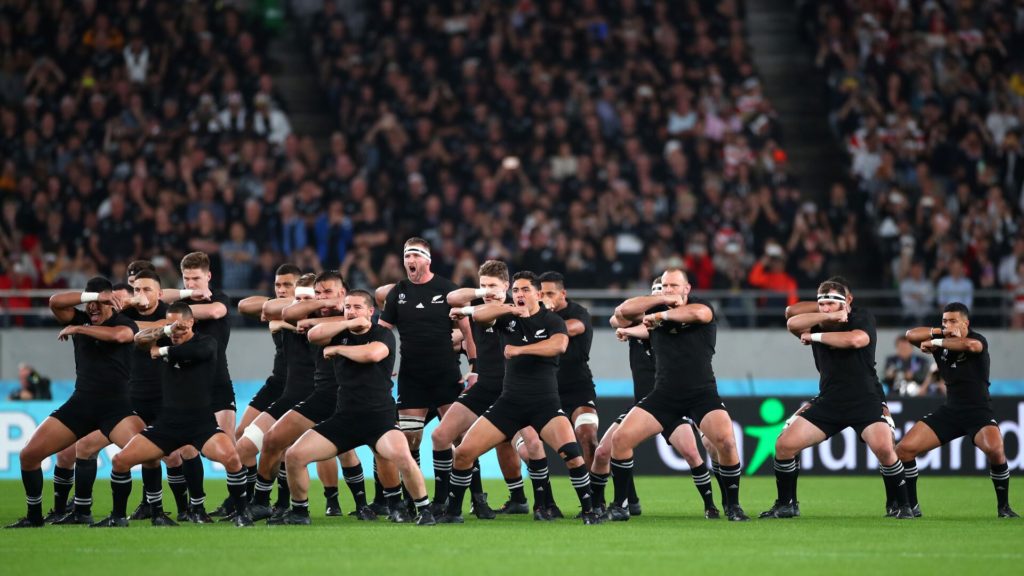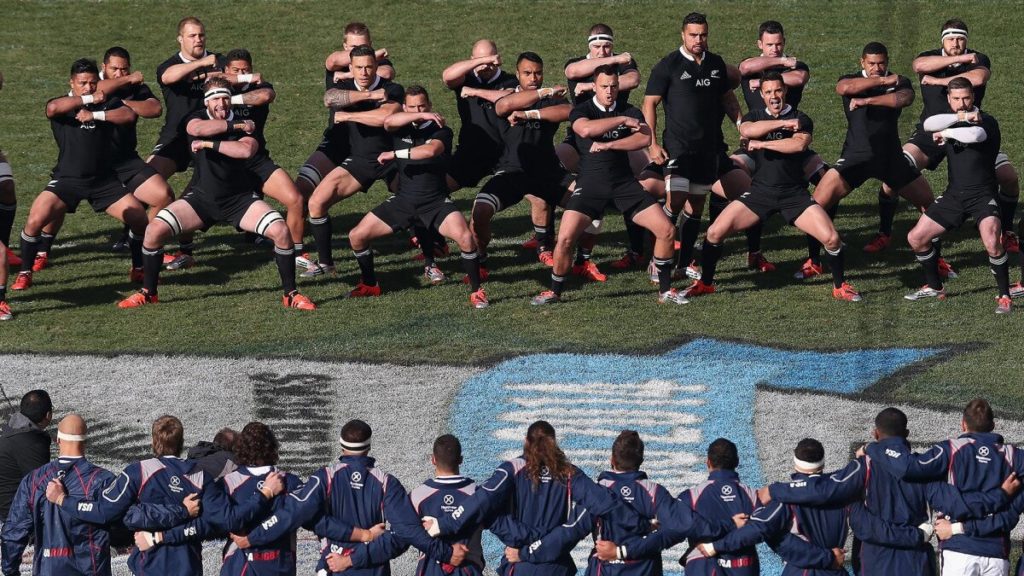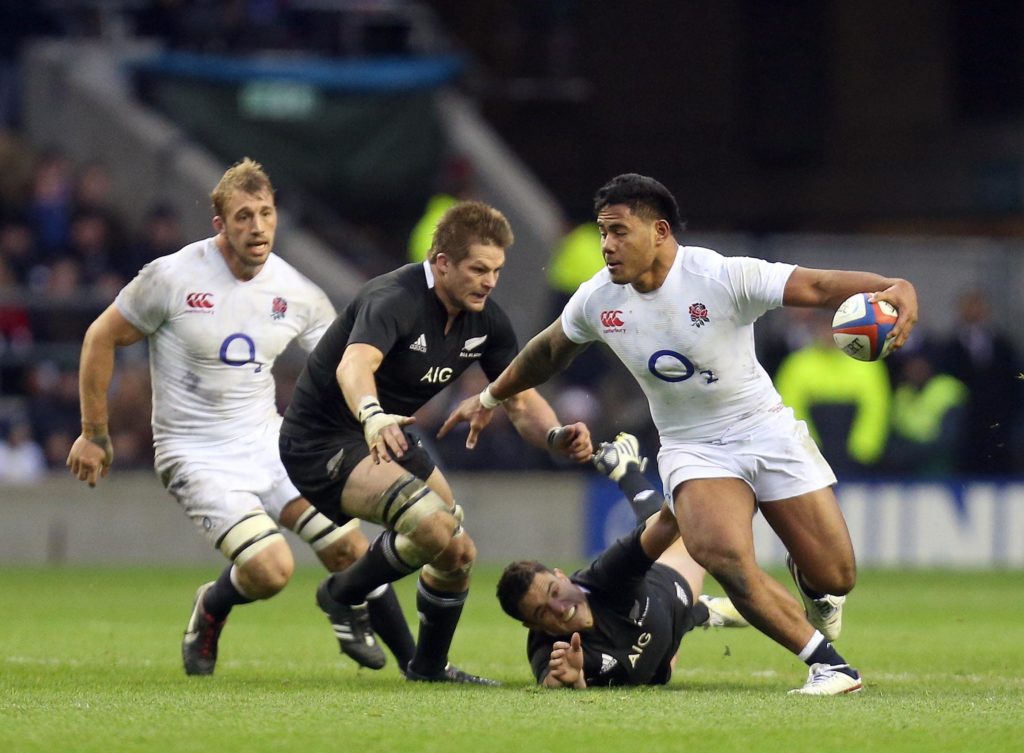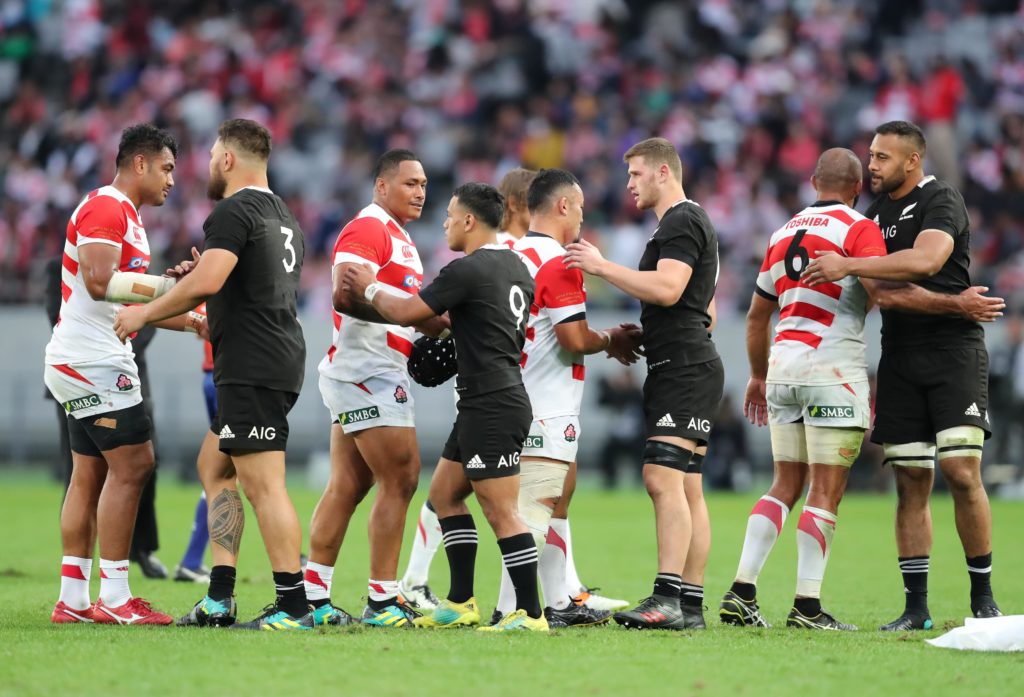There’s no shortage of intrigue building about the prospect of New Zealand Rugby doing a deal to sell 12.5 per cent of their future revenue to US fund manager, Silver Lake.
Top of the list of questions that are being asked is how exactly Silver Lake is going to more than double NZR’s income in the next nine years.
NZR is forecasting that it will make $205,000 of revenue in 2021 – a figure, should it sign the proposed deal with Silver Lake, which will jump to $447m by 2030.
It’s a giant leap to make in a relatively short space of time and so far, there is little to no detail as to what will drive this increase.
Some vague concepts have been mentioned by NZR: they have suggested that they may look at creating an OTT streaming platform, improve their merchandising sales and build All Blacks centres of excellence around the world where people can pay to peek behind the curtain and see what makes the team special.

Many commentators and analysts have also assumed that Silver Lake, should they come on board, will look to load up the All Blacks with yet more tests and milk as much revenue of the cash cow as possible.
For the last 15 years or so, additional tests have been part of the All Blacks’ landscape. The NZ national side are a massive drawcard, capable of selling out stadia all over the world, and receive constant offers to play in different venues.
These offers are always tempting, mostly because they are a relatively simple way to generate quick cash and show, in some cases, the All Blacks to a potential new market. Agreeing to play a test outside the agreed international window is relatively simple in New Zealand as the national body owns the players and hence there is no club versus country conundrum to work through.
The All Blacks have played Bledisloe Cup tests in Japan and Hong Kong. They have played Ireland and the USA in Chicago and have also played revenue-sharing tests in Wales, England and Japan.
There is no going rate as such for these additional tests, but in 2012 NZR banked close to $4m after the All Blacks played England on December 1 – a game that fell outside World Rugby’s agreed schedule.
Silver Lake are not benefactors. They are not going to pump a whole lot of money into New Zealand Rugby without expecting a return.
Former NZR chief executive David Moffett
When they played the USA in Chicago they took $1m after costs, as they did in Japan in 2013 and 2018.
What seems to be built into the assumption is that Silver Lake will demand the All Blacks play more tests for more money.
This was a point made by former NZR chief executive David Moffett, who told National Radio: “Silver Lake are not benefactors. They are not going to pump a whole lot of money into New Zealand Rugby without expecting a return. I am struggling to see how they can increase the revenue return to NZR and ultimately themselves that New Zealand Rugby haven’t been able to do on their own.
“Because if they don’t get the return that has been worked out, because spread sheets are one thing but delivery is another, then they will be looking at ways at which they can and… the first place they will look at is how many times can we get the All Blacks to play and where they can get them to play.
“Will it be exhibition matches in the United States for example? But whether it’s now or in the future you will see the All Blacks playing more games and perhaps more meaningless games and that just devalues the greatest brand in rugby.”

The money might be relatively easy to bank, but the issue is the level of risk that these extra games carry. The All Blacks’ legacy is the foundation on which their value is built.
It’s their endless years of success that makes them the team they are and it is the consistency of their performance and ability to win so many tests that has attracted the likes of Silver Lake.
Scotland, after all, have a similar population and a rugby team with an equally long history that plays in high profile competitions such as the Six Nations and World Cup. But there is no way on earth that Silver Lake would value Scotland at $3.1bn – as they have the All Blacks.
Winning is everything and there is little question that these additional games in the past have compromised the All Blacks. In 2012, they lost at Twickenham – they were hammered, in fact, by England.
It was a game too far that year and while $4m went into the bank account, seeing England run riot like that did long term damage to brand All Blacks. Interestingly the other additional game they played that year was the third Bledisloe Cup clash in Brisbane – which they drew, which meant they finished 2012 with a record of 12 wins, one draw and one defeat.
With the world slowly returning to normal, NZR have an understandable desire this year to play more than they normally would. Some of that motivation is about restoring the balance sheet, but so too is it about giving All Blacks coach Ian Foster an itinerary where he can develop the depth of his squad.
In 2016’s additional test, the All Blacks lost, for the first time in history, to Ireland. It was the only defeat they suffered that year and so the two most lucrative tests in New Zealand history have both ended in defeats.
The strategy of playing for money has not been overly successful for NZR, something that chief executive Mark Robinson has held front of mind in regard to not only the discussions with Silver Lake, but also to this year’s test calendar.
While NZR came through COVID-19 exceptionally well and significantly better than they had originally forecast when the pandemic first hit, they still posted a loss of $34m, which also saw their cash reserves drop from about $100m to $68m.
With the world slowly returning to normal, NZR have an understandable desire this year to play more than they normally would.
Some of that motivation is about restoring the balance sheet, but so too is it about giving All Blacks coach Ian Foster an itinerary where he can develop the depth of his squad and find out more about certain players – having only been afforded six tests in which to do that last year.

There were 15 tests planned for this year, but the number is likely to drop as Italy, who were scheduled to play twice in July, are no longer heading to NZ.
Discussions are ongoing to see if Fiji – whose series with Ireland has also been cancelled due to COVID – can be persuaded to play two tests in New Zealand instead, with another Pacific Island potentially providing a third test.
Aware that the July tests were in danger of not going ahead, NZR accepted an invitation to play Wales in Cardiff on October 30 – a game that falls outside the window and hence will deliver a financial windfall for NZR.
They are also in discussion to play Japan in Tokyo on October 23, which, if that falls through, could be replaced by playing the USA in Las Vegas on the same date. More likely, the All Blacks will play Japan and an All Blacks XV will go to the USA.
Whether it’s USA or Japan, the All Blacks will play two additional, for-cash fixtures this year and play five tests in succession through late October and November.
To suggest it’s going to be more and more rugby and travelling circuses is ridiculous. They’ve got a thesis that is aligned with ours around how do we create more premium rugby content, stronger narratives around our competitions that drive more revenue with the same or potentially less rugby.
NZR chief executive Mark Robinson on the potential Silver Lake deal
These games will come after the Rugby Championship, which will start in August with a three-test Bledisloe series – in successive weeks – with the next four likely to be played in September and early October.
All up, the All Blacks could have to play 11 tests in 16 weeks and this stands as all the evidence required to shoot down this idea that Silver Lake’s plan will be to cram more tests into the calendar.
The system is already at its limit – the balance between player welfare, reputation and financial gain will break if any more tests are crammed into the schedule, hence NZR chief executive Mark Robinson’s assertion that Silver Lake have no intention of running the All Blacks into the ground: “It’s a fallacy to suggest that is what their focus is on. We’ve never supported that thesis either in terms of what it means for player welfare which is our number one concern,” he said at NZR’s recent annual general meeting.
“To suggest it’s going to be more and more rugby and travelling circuses is ridiculous. They’ve got a thesis that is aligned with ours around how do we create more premium rugby content, stronger narratives around our competitions that drive more revenue with the same or potentially less rugby. That is ultimately where we’d like to get to.”
And this is potentially where things get most interesting because it sounds as if Silver Lake want to come in from a new perspective and breathe life into what is quite a staid and tired formula.

Their perspective appears to be that the All Blacks play too many ‘non-competitive’ tests, or at least two many games that lack a wider context and meaning and aren’t effectively promoted, or built up.
This is hardly the fault of NZR. They are beholden to World Rugby producing a July and November itinerary and goodness knows the major nations have tried to build something more appealing around the two test windows without ever being able to agree on anything.
Silver Lake, it appears, are backing themselves to be able to leverage more than NZR previously have. They are backing themselves to package tests and build a more compelling itinerary for the All Blacks which won’t necessarily see them play more rugby each year, but instead, play higher value tests.
That doesn’t just mean they will demand a higher fee to play outside the test window, it means the All Blacks might try to negotiate their own test schedule and who knows, rather than play three random, one-off tests in November 2022, they could play a three-test series against England.
Such an overhaul is perhaps long overdue and if Silver Lake can find a way to maximise the value of every test the All Blacks play and build a more fan-friendly, engaging itinerary every year, they will prove to be a worthy equity partner for the game in this country.



Comments
Join free and tell us what you really think!
Sign up for free